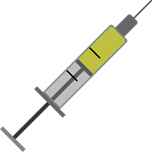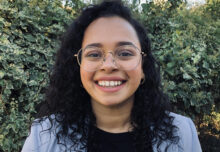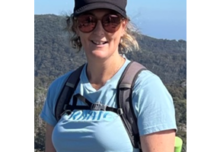Give them their best shot
Under-immunisation of refugees and asylum seekers in Australia – a preventable disease burden.
Written by Emma Thompson for The Water Well Project
Across the globe, more people are seeking safety from violation of basic human rights than ever before since WWII. In the midst of this unparalleled humanitarian crisis, we have seen some of the best and worst of humanity. From witnessing lifeless bodies wash up on shores around the world, to welcoming refugees with applause, supplies and toys for the children, emotions are high and help is needed.
As health practitioners, what is our role?
Health is a basic human right for all, and this is no different for individuals from refugee or asylum seeker background arriving in Australia. For this particular group, vaccine-preventable conditions constitute a devastating and avoidable disease burden. Provision of vaccines is one of the most efficient and effective ways possible to support this vulnerable group.
To start, we must recognise that even before arriving in Australia, refugees and asylum seekers have an increased risk of poor immunisation coverage. Currently, Australia has one of the most thorough immunisation schedules worldwide, and as such no one arriving from overseas will be entirely up-to-date. Countries of passage for these individuals are often endemic with vaccine-preventable diseases (VPDs), associated with limited and poorly accessible immunisation programs. This puts refugees and asylum seekers at an increased risk of disease even prior to displacement. Subsequently, the refugee journey can disrupt health services.
Identification of disparity:
The difficulty in ensuring all people of refugee and asylum seeker background are immunised involves record keeping and identification. Despite Australia’s National Immunisation Program achieving over 90% coverage for most childhood vaccines, national statistics can mask population groups with lower rates. The Australian Immunisation Register currently has no mechanism in place to identify people of refugee or asylum seeker background. This leads to insufficient data concerning immunisation coverage within this specific at-risk population, and results in limited acknowledgment of the gap. Appropriate surveillance and evaluation of health policies is also hindered. The implementation of a strategy to identify at-risk populations would address an important gap in vaccine-preventable disease control. A high level of coverage in all subgroups is important, not just to protect the vaccinated individual, but also to maintain herd immunity and protect all members of society.
Primary care barriers:
A systematic approach involving identification, thorough immunisation records and cultural sensitivity is needed. Providers may not realise the specific health needs of refugees and asylum seekers, and may not have a complete understanding of the resources available. If an individual is not recognised to be part of an at-risk population, opportunities for vaccination will be missed. Determining prior immunisation status can also be difficult and time-consuming, and mistakes may lead to under- or over-immunisation and potential vaccine wastage. In addition, the medical issues faced by individuals from refugee and asylum seeker background can be complex. Cultural sensitivity will help to overcome this barrier and maximise communication and understanding. All individuals from refugee and asylum seeker background are eligible for free catch-up vaccines in Victoria. Limited knowledge of this results in financial concerns unnecessarily preventing accessibility of vaccines.
Sociocultural differences:
Community engagement and education is vital to raise awareness and understanding of the Australian healthcare system, including rights to healthcare and services provided. Language barriers, cultural differences in health seeking behaviour and mistrust of authority figures may prevent new arrivals from accessing healthcare.
The Water Well Project works to improve vaccination uptake rates by increasing awareness of available health services, whilst also presenting friendly volunteer healthcare providers in the community to break down barriers.
Once we understand the issues, we can make a change.
Ultimately, the barriers associated with under-immunisation of refugees and asylum seekers are resolvable with awareness of the underlying factors precipitating this preventable disease burden.
Refugees and asylum seekers deserve every chance possible at healthy, happy and safe lives here in Australia. It’s our turn to help, so let’s give them their shots.
References:
- Department of Health. Childhood immunisation coverage [internet]. Australia: Australian Government; Dec 8 2017. Available at: https://beta.health.gov.au/topics/immunisation/childhood-immunisation-coverage
- Department of Health. National Immunisation Strategy for Australia 2013-2018 [internet]. Australia: Australian Government; Nov 2013. Available at: http://www.immunise.health.gov.au/internet/immunise/publishing.nsf/Content/B2D3E81EEDF2346ACA257D4D0081E4BC/$File/nat-immune-strategy-2013-18-final.pdf
- Kpozehouen, E., Heywood, A.E., Kay, M., Smith, M., Paudel, P., Sheikh. M., et al., Improving access to immunisation for migrants and refugees: recommendations from a stakeholder workshop. Aust NZ J Public Health [internet]. Nov 20 2017 [cited Apr 23 2017]; 41(2); doi:10.1111/1753-6405.12602
- Mahimbo, A., Seale, H., Heywood, A.E., Immunisation for refugees in Australia: a policy review and analysis across all States and Territories. Aust NZ J Public Health [internet]. 2017 [cited Apr 8 2017]; 41(6):635-40; doi:10.1111/1753-6405.12710
- Paxton, G., Buttery, J., Heenan, R., Catch-up immunisation in refugees [internet]. Parkville, Victoria; The Royal Children’s Hospital Melbourne; Mar 2018. Available at: https://www.rch.org.au/immigranthealth/clinical/Catchup_immunisation_in_refugees/
- Refugee Council of Australia. State of the nation: refugees and people seeking asylum in Australia [internet]. Surry Hills NSW: Refugee Council of Australia; Feb 2017. Available at: https://www.refugeecouncil.org.au/wp-content/uploads/2017/02/State_Nation_2017_FINAL.pdf
- Victorian Refugee Health Network. Catch-up immunisation for refugees and asylum seekers [internet]. Victoria; Refugee Health Network; May 2016 [updated Jul 2017]. Available at: http://refugeehealthnetwork.org.au/wp-content/uploads/FINAL-UPDATE_July_2017_Information-sheet_2016_June_VRHN_Immunisation_Providers-V9.pdf





